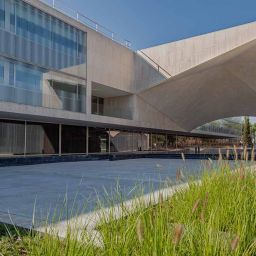When you’ve gained a certain degree of experience in the world of business management, there comes a time when you have to decide if you want to go even further. If you find yourself at this point in your career, congratulations! Because you’re one step away from embarking on a process that has the potential to change your life. However, that first step may be the hardest of all.
Even if you’ve already decided to take your career to the next level and to aspire to positions of greater responsibility through executive training (https://executiveeducation.iese.edu/es/), choosing the right program at this point in your career is no simple task.
Becoming the leader you want to be is going to require resources and a lot of effort, two ingredients that may be in short supply right now in your day-to-day life, and at a time when you’re likely also dealing with important personal and professional commitments.
Correctly choosing the right executive training program which best fits your reality is essential to achieving your objectives and developing yourself as a leader capable of positive and tangible impact. To make this selection process a little easier, in this article we want to help you better differentiate the two most in-demand programs by executives like you: the Executive MBA (EMBA) and the Program for Management Development (PMD).
An Executive MBA or PMD: Learn to differentiate the two most in-demand programs by executives like yourself
Age and professional experience
Although age and professional experience are not determining factors when choosing between the two programs, they can be useful as starting points.
The most frequent EMBA profile is a 32-year-old professional with a minimum of five years of experience in positions of responsibility, an optimal level of English and a high analytical capacity demonstrable through their GMAT test score. On the other hand, the typical PMD participant is usually 39-years-old and also has five years of experience, but in team management.
However, bear in mind that these data are only statistics and that each classroom is made up of very different profiles and realities that enrich the quality of both types of programs. This in mind, your specific age and years of experience should serve as orientative factors rather than impediments. It is important to note that the EMBA – being an accredited MBA program – has a more exhaustive admission process. In the PMD, on the other hand, the personal interview is the most determining factor when it comes to being admitted to the program.
The EMBA offers an intense journey of personal and professional transformation that trains you to take on any challenge that arises in the corporate realm.
Program content and structure
In the words of a recent participant who is very familiar with both programs, a quite graphic way to understand what you’ll learn and, above all, the implications of these learnings are that “the PMD is like facing a half marathon and the EMBA, a full marathon.”
As such, both prepare you to make decisions from a general management standpoint, both offer you new skills to master decision-making, and both programs boost the development of your leadership. Both will cause you to grow through the challenges posed and the dedication required. And, in addition, with both programs, you’re free to balance your courses with your current job and apply what you’re learning in the classroom immediately, since classes are concentrated on the weekends and during intensive weeks. But it’s not the same to commit to managerial training for six months as it is for 18.
In this sense, in a relatively short period of time, the PMD covers eight key leadership competencies to accelerate your trajectory towards top management through interaction, discussion of real cases and simulations. Considering that the participants usually arrive with significant experience leading teams, such a compressed format is made the most of, bringing out the best of every participant from day one.
Meanwhile, the EMBA is an intense and long journey of personal and professional transformation that prepares you to take on any corporate challenge. Over the course of nearly two years, with 300 cases, three international weeks, exams, simulations and 1,500 hours of individual and team work, you will deeply refine your knowledge of the main areas of business management, decision-making, your global vision of business and the skills of well-rounded and efficient leaders.
As we said at the beginning, both programs will get you into shape, the only difference is that the PMD will leave you as sweaty as a short but very intense race, and the EMBA with leave you with a muscular soreness that will last you a few more weeks.
Your personal situation
Undoubtedly, where you are in life and your aspirations should be the definitive parameters for making the final decision to pursue a Program for Management Development or an Executive MBA. Once you’ve looked over the figures and details of each program, it’s worth asking yourself with all honesty which of the two better fits your unique situation right now, which one will you be able to enjoy more, and which one will you get more out of. In short, which program can you afford in terms of time and resources, and which one will help you reach your professional goals and expectations.
Although each candidate is different, those who opt for the Executive MBA usually have it very clear that they want to live the full experience of an MBA program or they want to add an MBA degree to their CVs. Either because it’s something they’ve always wanted to do, because they aspire to positions that require the qualification, because they dream of creating their own company or because they’re looking for new opportunities at an international level.
In the case of the PMD, on the other hand, we’re talking (in general) about participants who are looking to take a professional leap, who already have strong professional profiles but who want to go one step further, who are aware of their own limitations when it comes to better managing their own company or to aspiring to positions of greater responsibility and who are excited about the idea of receiving formation in a business school like IESE, but who don’t necessarily need an official degree. These people see a program such as the PMD as a more affordable option that also guarantees them a very rigorous learning experience in all business-related aspects and the impetus they’re lacking to continue progressing in their career and to get out of an area they’re too familiar with.
Don’t doubt it, executive training is worth it
During these uncertain times we’re living, nobody can guarantee you anything. So it’s normal that you continue to have doubts, even after you’ve enrolled in the program you’ve chosen. Will it be as good as I have been told? Will I get that position that I keep thinking about? Will I get the investment back? Will I be able to keep my business alive and strong?
We can’t answer all these unknowns. But we can say that executive training is worth it, and that the economic cost is almost the last factor that you should be thinking about right now. First off, because of the multiple financing options that exist and, secondly, because of the enormous chances you have of increasing your income after the program. But above all, because it’s a once-in-a-lifetime experience that can take you much further than you imagine, and because it constitutes the most solid foundation for you to be able to improve the world we live in as a leader.
















